
What is Hepatitis C?
“Hepatitis C” refers to inflammation of the liver. The liver is a vital organ that processes nutrients, filters the blood and fights infections. If inflamed or damaged its function can be severely affected. 14, 15
Hepatitis C can be caused by a number of factors, like viruses (Hepatitis B and C virus), alcohol abuse and large doses of certain medications. 16
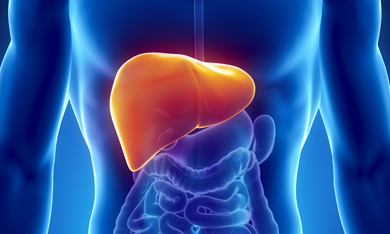
What is Hepatitis C?
Hepatitis C is a virus (called HCV) that infects the liver. Acute Hepatitis C occurs in the first 6 months after a person is infected. Approximately 25% of people with acute HCV recover completely during this time. Acute infection can range in severity from very mild illness with few or no symptoms, to serious conditions that may require hospitalization. 14, 16, 17
About 75% of people suffering with acute HCV tend to develop long-term or chronic HCV. Unless successfully treated, chronic HCV can lead to liver cirrhosis (scarring), liver cancer and liver failure. 17
Stages of liver disease?
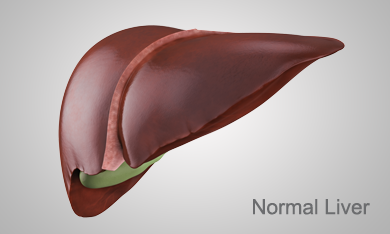
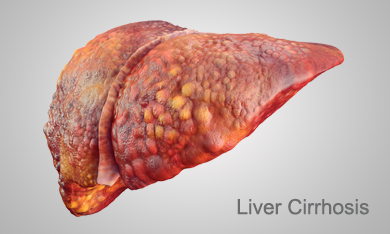
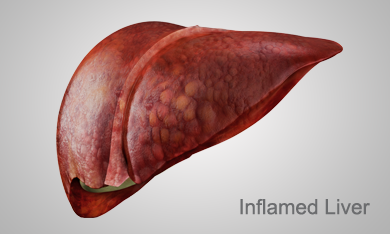
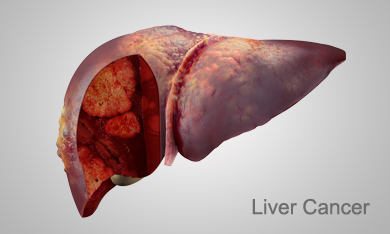
How common is Hepatitis C infection in India?
Approximately 1 in 100 persons in India are likely to acquire Hepatitis C infection. It is estimated that 2,88,000 new HCV infections occurred in India in 2014. Nearly 96,000 people die annually in India due to Hepatitis C, which has become a hidden epidemic according to a WHO report titled, 'Global policy report on prevention and control of viral Hepatitis'. The prevalence of HCV infection in India is up to 1% of the total population of 1.2 billion. 18, 19, 20, 21
Who is at risk of developing Hepatitis C?
One can get Hepatitis C if one is exposed to, or comes in contact with blood from a Hepatitis C infected person. This can happen if people:14,15,16,18,22
- Share drug needles with an infected person
- Received a blood transfusion before 2001, when blood was not routinely tested for Hepatitis C or other infections
- Were born to a mother who had Hepatitis C (There are 6% chances of HCV being transmitted from mother to child)
- Are tattooed or pierced with unsterilized tools that were used on an infected person
- Are accidentally stuck with a needle that was used on an infected person
- Use an infected person’s razor or toothbrush
- Have ever been on hemodialysis
- Have ever worked or been housed in a prison
- Rarely, sexual transmission of Hepatitis C is possible
What are the common symptoms of Hepatitis C infection?
Only 15–30% of patients infected with the virus usually experience any symptoms. If symptoms appear, they do so within 5 to 12 weeks of HCV exposure, and last for about 2 to 12 weeks. 23 Symptoms may include: 24, 25
- Fever
- Fatigue
- Headache, depression, mood swings
- Loss of appetite
- Nausea
- Vomiting
- Abdominal pain
- Dark urine
- Clay-colored bowel movements
- Joint and muscle aches and pain
- Jaundice
What are the long-term effects of Hepatitis C?
Of every 100 people infected with Hepatitis C, about 75–85 people usually develop chronic Hepatitis C infection. Of those,
- 60–70 people may develop chronic liver disease
- 5–20 people may develop cirrhosis over a period of 20–30 years
- 1–5 people might die from cirrhosis or liver cancer 25
How does one know if one has Hepatitis C infection?
The only way to know this is by getting tested. Doctors diagnose Hepatitis C using two types of tests:
- a. A test that checks the blood for antibodies, i.e. proteins made by the immune system in response to the virus.
- b. A test that checks for a substance called Ribo Nucleic Acid (RNA) made by the virus itself.
Most people who have a negative antibody test do not have Hepatitis C infection and don’t need additional screening tests. 14, 15, 16
Reference
14 Centers for Disease Control and Prevention, U.S. Department of Health and Human Services. HEPATITIS C [Internet]. Atlanta, Georgia, United States: Centers for Disease Control and Prevention; U.S. Department of Health and Human Services 2015 [updated 2015; cited 2015 March 22]. Available from: http://www.cdc.gov/hepatitis/HCV/PDFs/HepCGeneralFactSheet.pdf
15 Sanjiv Choprs, MD, MACP. Patient information: Hepatitis C (Beyond the Basics) [Internet]. Boston, Massachusetts, United States: Harvard Medical School, UpToDate; 2015 [updated 2015 March 8; cited 2015 March 22]. Available from:http://www.uptodate.com/contents/hepatitis-c-beyond-the-basics
16 American Liver Foundation. Hepatitis C [Internet]. New York, United States: American Liver Foundation 2015 [cited 22 March 2015]. Available from: http://www.liverfoundation.org/downloads/alf_download_24.pdf
17 Wilkins T, Akhtar M, Gititu E, Jalluri C, Ramirez J. Diagnosis and Management of Hepatitis C. Am Fam Physician. 2015 Jun 15;91(12):835-42.
18 Pankaj Puri et al. Consensus Statement of HCV Task Force of the Indian National Association for Study of the Liver (INASL). Part I: Status Report of HCV Infection in India. Journal of Clinical and Experimental Hepatology. 2014; 4(2): 106–116
19 Radha K. Dhiman. Future of therapy for Hepatitis C in India: A Matter of Accessibility and Affordability? Journal of Clinical and Experimental Hepatology. 2014; 4(2): 85–86
20 Amirthalingam R et al. Prevalence of HIV-1, HCV and HBV Infections among Inhabitants in Chennai City at Hi-tech Center, Tamil Nadu-India. Medical Science, 2013, 3(8), 24-28
21 Shimona Kanwar. Hepatitis C infection spreading fast in India. [Internet]. TNN: Times of India; 2015 [2015 April 28; cited 2015 October 15]. Available from:http://timesofindia.indiatimes.com/city/chandigarh/Hepatitis-C-infection-spreading-fast-in-India/articleshow/47080473.cms
22 National Institute of Diabetes and Digestive and Kidney Diseases, Bruce Bacon, M.D.( American Liver Foundation), Theo Heller, M.D. (NIDDK, National Institutes of Health), Luby Garza-Abijaoude, M.S., R.D., L.D. (Texas Department of Health), Thelma Thiel, R.N. (Hepatitis Foundation International). What I need to know about Hepatitis C [Internet]; National Institute of Diabetes and Digestive and Kidney Diseases, Clearinghouse 2012 [updated 17 March 2014; cited 22 March 2014]. Available from: http://www.niddk.nih.gov/health-information/health-topics/liver-disease/hepatitis-c/Pages/ez.aspx
23 Behzad Hajarizadeh, Jason Grebely, Gregory J. Dore. Epidemiology and natural history of HCV infection. Nat Rev Gastroenterol Hepatol. 2013;10(9):553-62
24 National Health Services - Symptoms [Internet]. 2015 [updated 2015 January 23; cited 2015 February 22]. Available from: http://www.nhs.uk/Conditions/Hepatitis-C/Pages/Symptoms.aspx
25 Division of Viral Hepatitis and National Center for HIV/AIDS, Viral Hepatitis, STD, and TB Prevention. Viral Hepatitis – Hepatitis C Information [Internet]. Atlanta, Georgia, United States: Centers for Disease Control and Prevention; U.S. Department of Health and Human Services 2015; [updated 2015 February 13; cited 2015 February 22]. Available from: http://www.cdc.gov/hepatitis/hcv/cfaq.htm
Disclaimer
Mylan makes no representations or warranties, express or implied, as to the accuracy or completeness of the information provided on this website and disclaims any liability for the use of this website or any site linked to it. Mylan retains the right to change the content of this website at any time without notice but does not assume any responsibility to update it. Neither Mylan nor any other partner involved in creating, producing or delivering this website is liable in any manner whatsoever for any direct, incidental or consequential, indirect or punitive damages arising out of any access, use or inability to use this website, or any errors or omissions in the content thereof. Nothing contained in this website should be construed as medical, legal, investment, financial or other advice. Without limitation, nothing contained in this website should replace medical advice, medical visits or recommendations from health care providers. Access and use of any information or content on this website shall be at one’s own risk.




